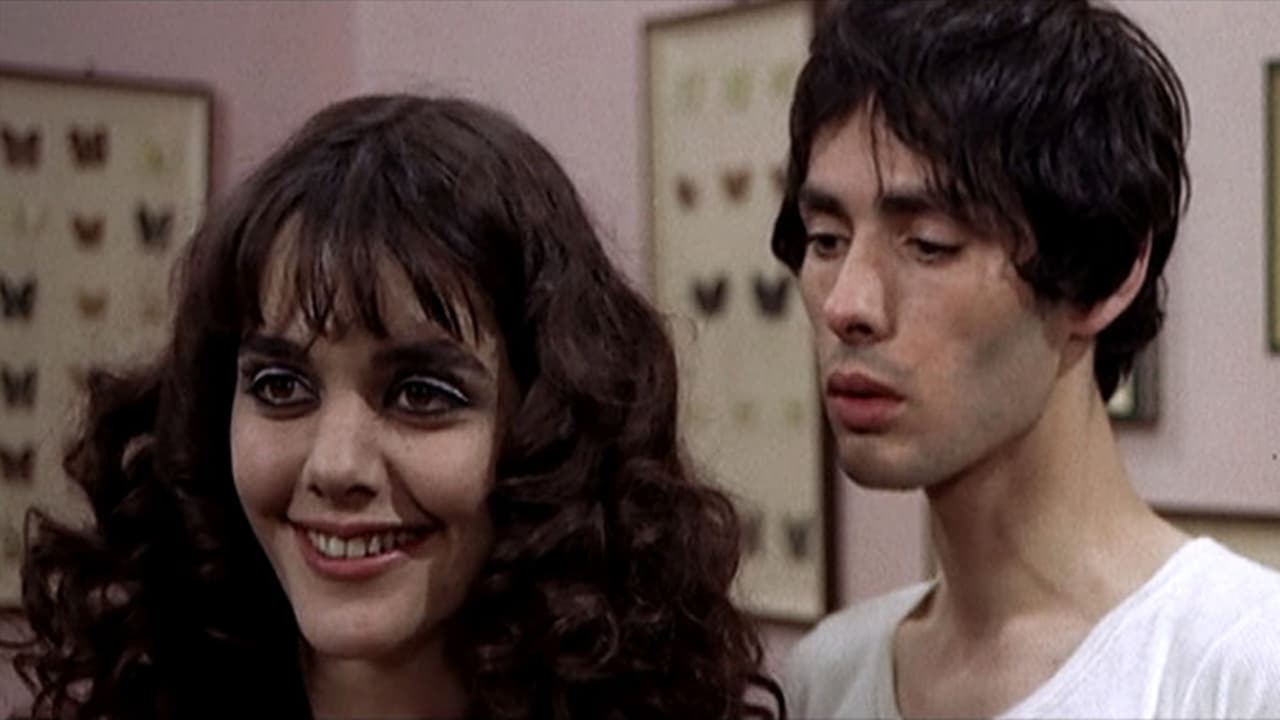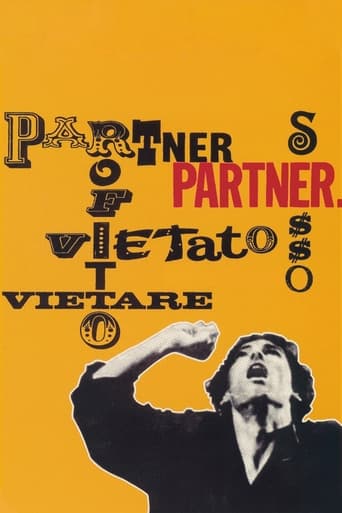

Bertolucci was heavily indebted to Godard and the other French New Wave directors in his sophomore feature, Before the Revolution. His third feature, Partner, has him follow Godard into his fin de cinema. Partner is a purely experimental film with little narrative. It's definitely a turn for the worst for Bertolucci. Thankfully he was drawn back into narrative cinema with his fourth film, The Conformist. Partner is worth seeing for fans of the director and New Wave enthusiasts. It has some interesting points. The minimal plot of the film has Pierre Clémenti playing a man with split personalities. Most of the rest of it is made up of random vignettes. Some are amusing, some are annoying. Some are just plain boring. Unfortunately, there just aren't enough amusing ones to make it an easy watch. Clémenti is excellent, and Bertolucci lives up to his reputation as one of the cinema's greatest visual minds. Stefania Sandrelli, who would go on to star in The Conformist, appears briefly with curly blonde hair. She doesn't do much, but she's gorgeous.
... View MoreI was at Amoeba Music(A Hollywood Record Shop) the other day with my roommate and I had found this in the used section and it seemed interesting. I had never heard of it before and I didn't have the cash to buy it, but my roommate did, and bought it instead. I think this was one of the best films I've ever seen. The story is apparently an adaptation of a Dostoevsky story called "The Double",(which I've never read), the film is about a young Theater professor in the sixties, who begins losing his mind, and seeing an identical version of himself who begins giving him orders, egging him on to commit acts of terrorism, murder, and just generally insane things. It precedes Fight Club by thirty years. A remarkable film, from a great director in his own right, before Last Tango In Paris, there was Partner. A funny, smart, riot of a film, that creates tension and absurd explosion with the same grace, conjoined like deformed twins at the hip.
... View MoreThis rather ludicrous exchange takes place at the end of David Lean's adaptation of Boris Pasternak's epic novel DR. ZHIVAGO:Gen. Yevgraf Zhivago: Tonya, can you play the balalaika?Tonya's Boyfriend: Can she play? She's an artist!This dialogue, as well as the scene within the framing device of Yuri Zhivago's brother Yevgraf finding Yuri's love child with Lara and telling her about her "past," appears nowhere in the novel. Instead, in an epilogue in the novel, two of the many characters, after the end of the Great Patriotic War (World War II), talk about how one had met this love child at the front. Their ruminations illustrate the great dislocations caused by the Revolution, Stalin's Terror, and the War. Nowhere does something as silly and trivial as the question "Can you play the balalaika?" appear in the novel.Movies that use great events as backdrops to personal stories tend to trivialize the great events and make the intimate lives of their characters rather absurd and trivial (ironically, the very charge Strelnikov makes to Zhivago, in reference to his poetry, in Lean's movie). Great events such as revolutions wash over everyone and have to be handled with the greatest care to avoid this fundamental absurdity of the events being greater than the individuals.Before "The Dreamers," Bertolucci already made his film that ruminates on the events of '68 and its aftermath in the year itself:"Partner" ("Il Sosia"), based on Dostoyevsky's "The Double." It is very interesting, and very honest, look at the spirit of the times and I highly recommend it.
... View MoreAfter that it degenerates into an exercise in employing old art film cliches. Though he bases his movie on the Dostoyevsky story 'The Double', Bertolucci apparently has no message, and no original way to present it. By the end this movie has dragged you through a tedium of stupidity and indulgence. This is the kind of film that gives art movies a bad name. 4/10
... View More